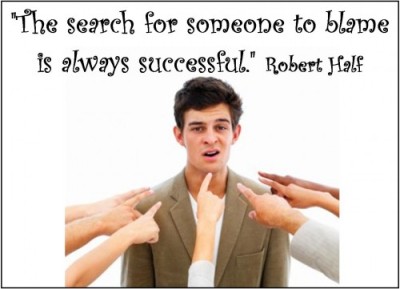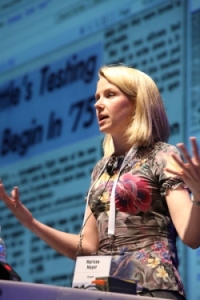Naturally, we almost always blame someone or something else for our powerlessness to achieve what we would like. And the worst is that we often don’t realize it because it has become so second-nature to us! It sometimes take someone else to pinpoint this awful habit.
 Whenever in a workshop or a meeting, for example in organizations, I instill the rule of ‘no blaming’, it soon becomes apparent how natural it is for us to find (good) reasons why we did not do what we committed to, or what we intended to. When you pay attention to it, you’ll find people fall all the time into the blaming mode. Not only blaming others, but also blaming the weather, the system, their family and/or their origin, and so on (our inventiveness in the field of excuses is truly fantastic)…
Whenever in a workshop or a meeting, for example in organizations, I instill the rule of ‘no blaming’, it soon becomes apparent how natural it is for us to find (good) reasons why we did not do what we committed to, or what we intended to. When you pay attention to it, you’ll find people fall all the time into the blaming mode. Not only blaming others, but also blaming the weather, the system, their family and/or their origin, and so on (our inventiveness in the field of excuses is truly fantastic)…
By the way, the higher ranking the participants are, the easier they will find excuses, which makes it even more fun to instill that rule of no blaming in executive or board meetings!
What if we would take responsibility more often? What if we would take responsibility for the delay, for the screw-up, for our incapacity to exercise more or eat less? Just taking responsibility changes everything. It makes us in charge of our own life. It stops creating this tyranny of unchangeable fate and destiny.
Once you are aware of it, you’ll realize each time you use blame and excuses. You won’t bear it any more. And slowly you’ll become more responsible. You’ll become more human. And you’ll change your fate and destiny.











